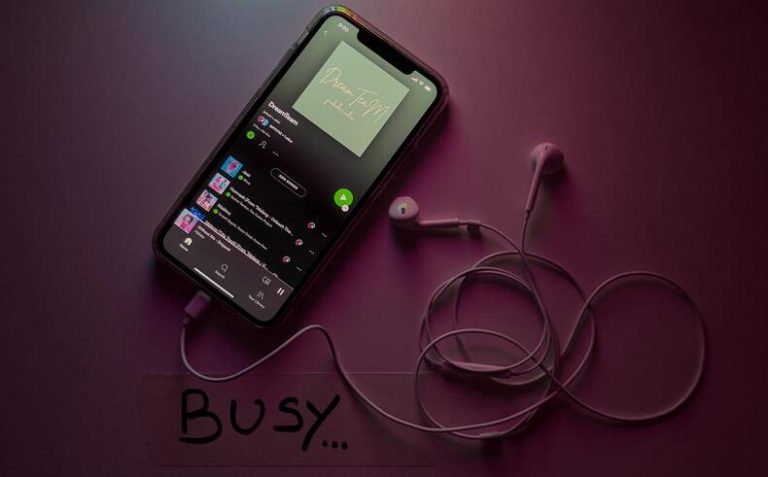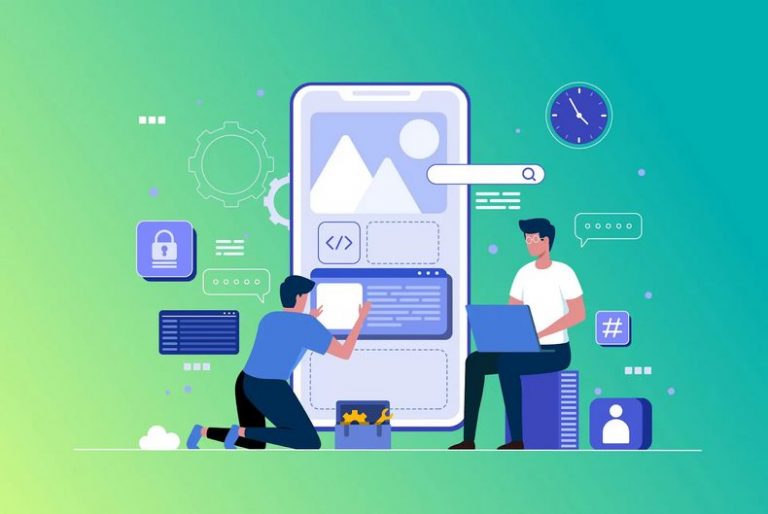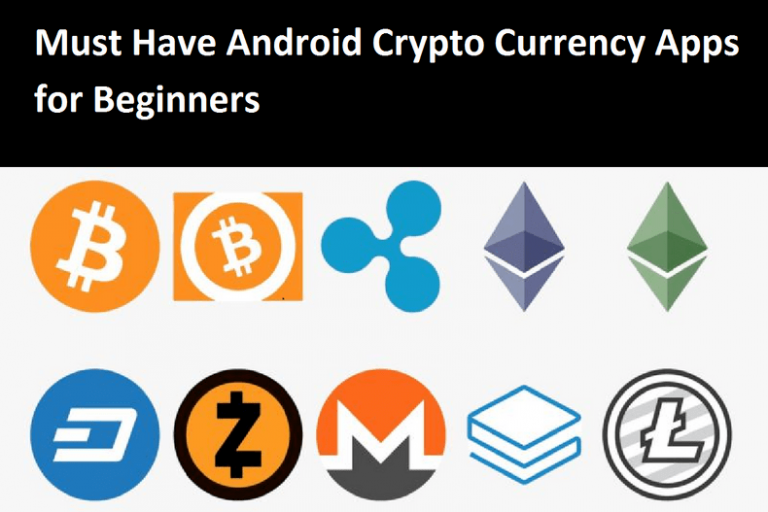What Is The Future Of Mobile App Development?
Pretty much all eyes are glued to the phone these days. An average American checks his phone every 6 minutes. With 88% of mobile time spent on applications, mobile apps are a great avenue to provide services.
But the application market is already saturated. And most apps are not usable. Thus, making users skeptical of trying out new solutions. But you can be different by exploiting mobile app potentials in a different way. Instead of creating existing solutions, you can provide better apps that use new technologies.
For instance, 5G provides the groundwork for fast data transfer. AR/VR is excellent for travel and gaming, while Instant Apps can save you downloading time and resources. These are all new trends in mobile app software development. Stick around to find out more.
5G Provides The Nuts And Bolts
Well, the formidable speed of 5G had been extolled for the better part of the decade. But it only started being adopted in 2021. For mobile app software, 5G can be the cornerstone of every new technology. How?
5G is 100 times faster than 4G. So, robust technologies and machines that can’t work on 4G use 5G technology without fuss. It transfers data faster in milliseconds, thus taking speed and quality to the next level. It reduces latency and provides the best customer experience.
It has many use cases for lots of new and existing technologies. You can enjoy better HD videos on YouTube without reduced quality or buffering. Devices like Oculus, smartwatches and fitness bands also work better with 5G technology.
Test Run Services With Instant Apps
We’ve all felt the agony of downloading large files of an app only to discover it’s not useful for our tasks. But instant apps help you conserve mobile data and time lost.
With instant apps, you don’t have to download apps to know their capabilities. You can check up an app on its website, test runs it, and determine whether it’s best for you before downloading. As a new agency, how does this affect your customers?
Most users are reluctant to download apps these days. So, with instant apps, consumers can have a taste of your solutions and determine whether they need them. It also saves them device storage space. Instant apps are one of the best software for a software startup that can’t be ignored. Because it helps generate higher visibility and conversion rates than native apps.
Progressive Web Apps A Capable Alternative
Another new trend in mobile software startups can use is PWAs. These are cloud-based apps that transcend codebase compatibility. PWAs can run on both iOS and Android devices as web applications.
Unlike Instant Apps, they don’t have test run options. Instead, you download them like any other Android and iOS device. But they have a website-like interface with native app features. It also charges a lower data rate and takes less space than native apps. Besides, it offers cloud-based storage functionalities.
Instant Applications are cheaper to develop and easier to maintain. On the other hand, PWAs provide better ready-made solutions. Instant Apps also use less user space. Your target consumer needs would determine what solutions you create for them. Nonetheless, both are good options in proper use cases.
Next-Gen AR/ VR Use Cases Beyond Gaming
Augmented Reality imitates artificial things in a real-life environment and displays them on your screen. While Virtual Reality makes you live the artificial experience in a real-life setting. You become an in-game character by wearing a VR headset. Today, not only gaming but also other sectors are using AR/ VR technology to streamline their processes.
For instance, medical students can understand biology better through 3D holograms of the heart. Customers can have a 360° view of products online and recreate them in a natural environment. Virtual fitting rooms help buyers test-wear clothes on their bodies. While Metaverse creates a virtual world on the internet. AR/ VR has lots of use cases that mobile software development companies can milk.
So, next time you think about Oculus or AR mobile apps, know that it’s not only useful for Pokemon Go developers. It is also actively used in
- Real estate
- Health care
- Sports
- Better experience for drivers
- Manufacturing.
And lots more. You can hire a mobile app developer to jump into this competitive market and do wonders.
Wearables: Electronics Solutions For Consumers
With wearables, doctors can keep track of a patient’s medical status. A wearable fitness tracker keeps you in shape throughout the year. Defense systems have incorporated the technology into radio systems, cameras, night-vision goggles, nano-drones, etc.
Meanwhile, consumer electronics is vastly taking up the wearables niche. Airpods, smartwatches, fitness bands, etc., are good examples of wearables. And with the market projected to hit $265 billion in 2026, it could be the next mobile solution to exploit.
You can also offer innovative wearable technologies for consumers in your field. Such devices can help streamline their process and enjoy a better user experience. You can also add other technologies like AR/ VR or smart app features to your mobile, wearable solutions.
Beacon Technology
Another emerging mobile app development trend that startups can’t ignore is beacon technology. Developers integrate beacon devices with Bluetooth chips and sensors, which help communicate and track device location. With these sensors, it can send and receive messages in real-time.
Beacon Technology is one of the most used mobile app development tools because of its ease of use. With increased adoption, Statista projects its market to hit $56.6 billion by 2026. Today, the technology is widely used in
- Health care
- Museum
- Travels and Tourism
- Hotel
- Retail
- Physical gaming
- Mobile payments
Amongst other technologies. Do you want to learn more about the technology and how to exploit its opportunities? Then, check out this article
New Tech Solutions To Safeguard Consumer Data
As enterprises create more web solutions, consumer information goes online to personalized services. But it also raises concerns about data privacy. How is safe your personal information online? Well, you can never know.
If applications get hacked, customer data gets breached. Which, in turn, damages user relationships and experience. But new technologies are offering solutions to mitigate this problem.
Mobile apps can provide better encryption solutions through DLT technologies like Blockchain. Biometric verifications like fingerprints, facial authentication, or voice recognition also offer a layer of security over personal data.
Artificial Intelligence is another technology that can enhance data safety. More people now make transactions online, which in turn increases online fraud. But through consumer data, banks can now use AI and Machine Languages tools to nab fraud transactions and reduce false positives.
Mobile Commerce Isn’t Going Anywhere
Admittedly, mobile commerce had been in use for a long time. But its yearly increase in adoption makes it a must-have for every company. 79% of smartphone users are currently buying online with mobile devices. The US mobile commerce volume is expected to hit 553.28 billion in 2024.
Google Pay and Apple Pay are good examples of mobile commerce systems. You can also incorporate cashless transactions into your mobile apps. Customers order products online, pay, and get them at their doorstep through mobile commerce.
The Wrap Up: Mobile App Development of Multi Experience
According to Gartner, the future of mobile app development is multi-experience. It’s not only about developing apps. It’s also about building personalized solutions for your customers’ needs.
Conversational apps that incorporate different next-gen technologies are the new solutions. Developers can use multiple technologies like IoT, DLT, AI, and AR/ VR to create mobile app solutions. It will ensure the optimal customer experience for users.
But the biggest problem yet has been insufficient skill set. Developers and enterprises must hone their skills and understand use cases. This can help them create the best solution for their customers. Still don’t know how to exploit the niche? Contact Emphasoft now for your mobile app development outsourcing.







